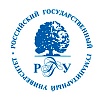Oleg Ignatkin: New challenges for a New World
In
Log in if you are already registered
One of the main challenges for U.S. and Russian Foreign Policies, following the idea of a prominent American scientist Richard Haass, alongside with some other distinguished professors is that Foreign Policy begins at Home.
In 1971 a prominent Harvard philosopher J. Rawls published a book “A Theory of Justice”, where he pondered on the issue of basic structure of society – society, based on the principles of justice and equality and freedom. His book is considered by many as one of the main ones on political philosophy in the 20th century. After the prominent dispute the consensus has not yet been reached. Recently, the argument was debated on many levels by other prominent American scientist M. Sandel, who is trying to present a communitarian argument as a solution.
The criticism of the basic structure of society is manifold. But it touches upon not only the domestic policies but foreign policies of both countries as well. The case of the humanitarian intervention is clearly important. Whether humanitarian intervention is a normal tool of modern diplomacy, that it has already become to be – name Latin America, Yugoslavia, Afghanistan, Iraq, Syria, Chechen Republic, Ukraine – or, otherwise it still needs certain judgment. Michael Walzer, for example, stands for the idea, that for many years in case of Yugoslavia, there was a casus belli, a just cause, a reason (justified by the Universal Declaration of Human Rights) – human rights violations. Noam Chomsky in his books is highly critical of this thesis to put it mildly.
According to Sandel, libertarians argue that liberalism leads to personal enslavement (taxes are enslaving according to them), communitarians argue that it is based on the individualism; Marxists criticize it for being too rich. The jury is still out, but libertarians seem to be a little bit winning again.
The problem is that prescription for the U.S. home policy at home doesn’t bode well with prescription for home policy abroad. IMF and World Bank’s work is clear illustration here. Russia faced a monetary shock that had very diverse consequences, to put it mildly. Joseph Stiglitz is highly critical of the work of these two institutions.
Environmental agenda is no less challenging. UN IPCC’s recent results are not inspiring, as well as politicians’ will. In this topic finding of common ground is even more challenging, since countries are interested in plants than in green revolution, and definitely in jobs. Jobs are everything in the new economy. In this world of «Super - Сapitalism», in the terms of Robert Reich, the stakes are pretty high.
They are high when we speak about national interests of states. Realism is playing a more important role in modern international relations. It is connected with nuclear proliferation, but assumes a new, quite risky role. Neorealism in its classic representation by K. Waltz, J.Mearsheimer and S.Walt is in retreat, leaving the place either for “neoconservative realism”, that is “propaganda realism” and “theoretical realism”. The former includes quite simplified, journalist clichés (axis of evil, rogue states, democracy promotion abroad), though it is by all means effective in its PR influence. Theoretical realism, is more astute, and for a vivid example, presented in the works by W. Wolforth is based on the number of principles. They are: “Alliance politics”, “Self –help”, Anarchy, Power politics.
So, whether we are striving for a more harmonious world is an open question. If we consider this notion in purely legalistic terms, one must assume the inevitability of some reconsideration of the modern world, based on aggressive politics. But one can argue that problems remain and these problems are indeed raising very important issues of the modern world.
Oleg Ignatkin, Associate professor, PhD. Department of Foreign policy and area studies.




